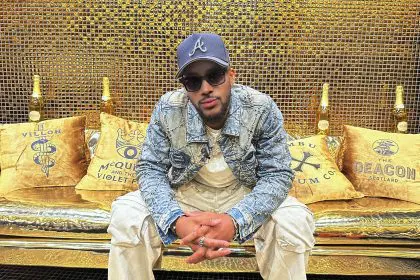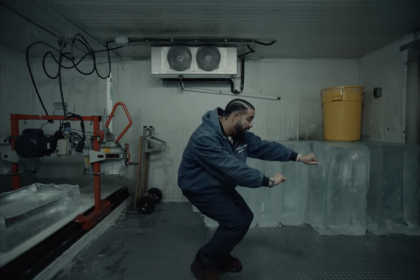
Kendrick Lamar performed his first major show since his jaw-dropping set at the Grammy Awards. The Grammy performance allowed Lamar to share his vivid artistry with a wider audience, but it also reminded the nation of the effects of racism on the psyche of Black America.
Lamar continued that theme as the headlining act for the first Okeechobee Festival in Okeechobee, Florida.
Moments before Lamar hit the stage, his live band set the mood for the evening by playing the instrumental to Earth, Wind & Fire’s “Can’t Hide Love.” It’s a song that’s classic, soulful, and essential to the Black family reunion playlist.
With thousands of millennial fans of all races screaming at the top of their lungs, Lamar paused for a second before speaking. “Oh America, you bad b—-, I picked cotton that made you rich,” Lamar said in his spoken word piece, “For Free?” It was obvious that Lamar would not only tell his story, he would, again, be giving the crowd a glimpse of the pain and joys of being Black in America.
Lamar followed with the funk-driven, “Wesley’s Theory” which describes the drawbacks of experiencing success after a lifetime of poverty. He perfectly transitioned into “Institutionalized” which also focuses on being mentally trapped by the norms associated with some urban environments. “I’m trapped inside the ghetto and I ain’t proud to admit it, institutionalized, I keep running back for a visit,” he rapped.
Lamar also took a moment to return to his coming-of-age story from the classic album, Good Kid, m.A.A.D City. He performed “Backseat Freestyle,” “Don’t Kill My Vibe (remix),” “Money Trees,” and “M.A.A.D. City.” The chaos-inducing “M.A.A.D City” turned sections of the crowd into a mosh pit as fans jumped, screamed, and even pushed to match the song’s high energy.
But overall, Lamar wanted to tell a deeper story. While rapping the harsh lyrics to the self-inflicting “U,” he noticed one concertgoer rapping every word as if he could relate to the pain of lyrics that say, “I never liked you, forever despise you I don’t need you, The world don’t need you, don’t let them deceive you.”
Lamar stopped the song to bring the concertgoer on stage and explained why depression and thoughts of suicide are issues that must be addressed. “Suicide is real,” Lamar told the crowd. “No matter how much money or fame [we get], we still hurt. I could look into his eyes and see that he was going through something.”
Depression in Black men is often a problem that is rarely addressed within the Black community. It was a moment that proved how Lamar is constantly observing his surroundings and unafraid to share his vulnerabilities.
Lamar ended his set with “King Kunta,” “i,” and the bouncy “Alright.” As Lamar walked off the stage, Boris Gardiner’s “Every N— Is a Star” played. The song, which is a sample that appears on TPAB, is abrasive, soulful and uplifting. Lamar ended another thought-provoking performance with a Black Power fist.















